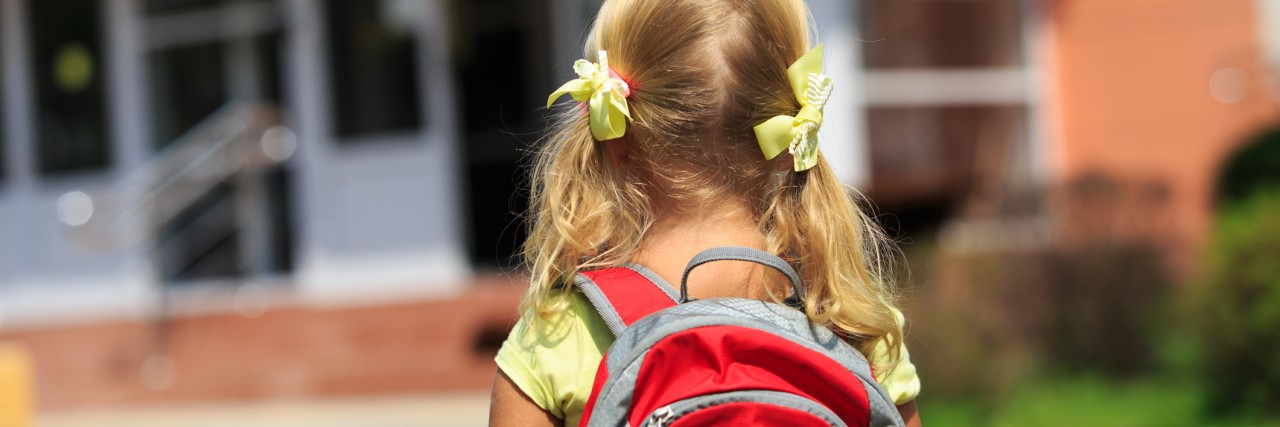I can recall the days I walked to kindergarten with my father, arriving to school early as “the early bird always catches the worm.” I wore my oversized polo shirt, white tennis shoes which would soon turn gray with wear, and navy shorts bearing the name of the school I was attending. The alphabet lessons, simple addition, and minimal strings of foreign language were my classroom lessons, yet, I fondly recollect the more important and seemingly more abstract ideas I carry with me to date.
Robert Fulghum discusses the prospect of true life lessons, including how to live, what to do, and how to be, as lessons with a root in kindergarten. Thirteen years later, at 18 years old, I can honestly say I agree with Fulghum. A lesson I find myself consistently returning to from my childhood is the overall idea of appearance being the least important aspect of what truly makes a person. In some senses, yes, appearance is important, however, my mind wanders to the more abstract and mature idea of our bodies being beautiful when they house a beautiful soul.
Personally, my childhood lesson of focusing less on appearance and more on what each and every one of us have inside, is one that shapes how I live, what I do, and how I want to and choose to be.
Growing up, change is truly inevitable, and when society changes or life throws a curve ball, the way we live may face unexpected alterations. From a young age, I have had a skewed view of who I am, in terms of body image and being able to genuinely like who I am. This view of myself, constructed from as young as kindergarten age, resulted in a battle with an eating disorder beginning intensely my junior year of high school. As someone who wasn’t necessarily content with my body, I still chose to nourish it, never entertaining the idea of starving myself and denying myself the right to eat. However, when life became unbearable with school, family, and friends, I turned to anorexia, which ultimately changed the way I was living. I lost the core of my childhood lesson, living in a disorder that left
me focused on my weight and appearance 99.9 percent of the time.
After struggling with anorexia nervosa for two years, I was finally able to admit myself to treatment to battle my internal and intrusive thoughts that left me struggling on a daily basis. As I became healthier, my childhood lesson began to shine through cracks. I was becoming happier, as my mood was stimulated by the nutrition and medicinal assistance I was providing myself. Gaining weight was not easy, yet, I began to feel at home in my body again, trying to accept it for whatever size it would be at my goal weight.
Simultaneously, I was completing treatment each day and working in my campaign to create awareness of eating disorders and the impact of negative body image on society as a whole. This is how my childhood lesson had an impact on the things I do. For the last four years, I have been a co-presider of a campaign that has reached thousands of individuals, consisting of those who are and are not affected by eating
disorders. My involvement in the campaign has allowed me to be an advocate for
the men and women who are in my old shoes, without an advocate or anyone to
speak up for the help they need. My recovery is shaping each and every day and giving me the opportunity to share my more-than-appearance based childhood lesson.
Fulghum addresses the idea of “how to be,” and I find this to be a difficult one to speak on. Societally, we are seemingly always told to be and act a certain way. This is
the very conception that helped fuel my eating disorder, leaving me with the impression that I had to be thin to be beautiful. However, returning to my lesson from kindergarten, there is no wrong way to look or to have a body. Logically this is a concept I know very well, yet, in the mind of an eating disorder, my body is wrong unless I am a skeleton dying in a hospital bed. In my recovery, I am not only relearning how to eat, but also relearning how to accept myself upon more than my outward appearance.
Through the lesson from my childhood, I am able to recall that I should live according to what my body needs, rather than giving into the standards of society. I am remembering that for me to help other people, I need to be the best me I can, which means maintaining my recovery, speaking the truth, and creating the peaceful acceptance of my body originally learned in my kindergarten past.
Image via Thinkstock.

